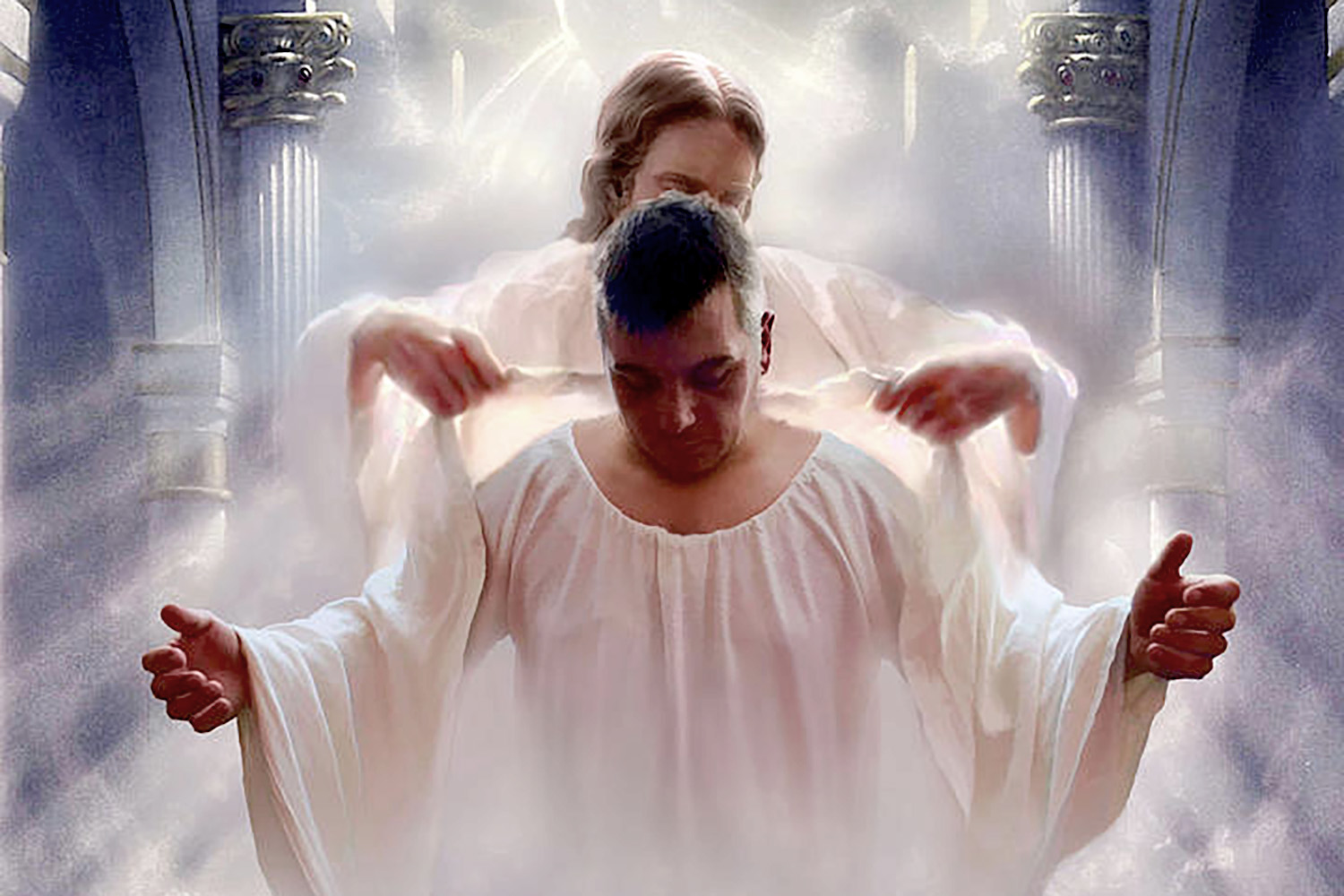What is the difference between history and theology, between history and philosophy?
History is fact, evidence, events that have transpired, actions revealed, conduct and methods acted out, and lives lived. It is revelation by action, by deed, by accomplishment that reveals how reality works, that reveals the quality or character of the participants. The Bible is a book of history, of evidence, reality, deeds, actions, and accomplishments to expose by fact, truth, and demonstration the corruption of sin, the lies of the enemy, and the saving truth of God.
Theology and philosophy are theories, explanations, rationalizations, and mental constructs that may or may not have anything to do with reality, history, facts, and evidence. Theology and philosophy are descriptions and explanations of events that may or may not represent truth.
There are events—and there are interpretations of events. Theology is interpretation of events.
Here is an example:
Historical event: Jesus was executed on the cross in AD 31 outside the gates of Jerusalem on Passover Friday.
Theology is the many and various interpretations of what that event means and what it accomplished. These interpretations vary wildly. Some hold that Jesus was only human and deserved execution for fomenting sedition against Rome and blasphemy against Yahweh. Others say God killed Jesus on the cross as punishment for human sins and to pay the legal penalty in order to propitiate the wrath of the Father so we could be legally pardoned by God. Still others say that Jesus voluntarily went to the cross to fulfill the joint purpose of the Godhead to destroy the death-causing element that Adam’s sin introduced into the species human and restore humanity to unity (at-one-ment) with God. And, of course, there many more interpretations (theologies).
My point here is that there are events, facts, accomplishments, and evidences—and then there are the interpretations, the spin, the explanations, the philosophies and theologies promoted about the events.
The Master of Spin
Satan is the master of spin, the inventor of sophistry, the father of lies, the twister of facts into perverse theologies that misrepresent God to be like the evil one in function and character.
God is the God of reality. He is the Creator and Sustainer of all reality. As such, He wants people to think, to reason, to comprehend, to taste and see, to experience reality for themselves—and to stop surrendering their minds to others to be told what the evidence means.
Satan’s primary method of twisting the evidence is by getting people to make an assumption that is false, and once that lie is assumed to be true, to then read the record of history—the Bible—and interpret that record through the lie they assume is true. In so doing, the facts get bent and twisted to teach the opposite of reality.
And Satan’s number one lie is that God’s law functions like human law—made-up rules that require external enforcement through the infliction of punishment. That type of law is the kind that creatures make, so to believe that God’s law functions in this way is to attribute to God the qualities and character of a creature.
But God is the Creator, and His laws are the design laws reality itself is built to operate upon—the fixed laws of heaven and earth (Jeremiah 33:25), like gravity, physics, the laws of health, and the moral laws of love, truth, liberty, and worship.
The primary purpose of Bible history is to get people to observe and understand reality, how God’s design laws function and work, why things happen the way they do, and to become enlightened, to watch and perceive, to see and comprehend. God wants us to see His actions in history, the facts of His accomplishments, interventions, achievements, and the results when He stops protecting the rebellious and allows them to experience what they insist upon—life separate from Him. All these historical evidences are to be understood in their revelatory nature—in other words, in what they reveal to us about God, the nature and character of sin, and God’s solution for it. It is the historical facts that speak most loudly, not the proclamations, and certainly not the philosophical and theological explanations so frequently promoted by modern religionists—because almost all modern theologies interpret the historical facts through the fallacy, the falsehood, that God’s law functions like human law and, therefore, they teach a punishing god who requires the blood of a human sacrifice be offered to him to propitiate his wrath and purchase forgiveness.
Below are links to several blogs in which I contrast the historical facts through the two law lenses. I challenge you to evaluate the evidence of history, think for yourself, and come to your own conclusion.
















 using your credit or debit card (no PayPal account needed, unless you want to set up a monthly, recurring payment).
using your credit or debit card (no PayPal account needed, unless you want to set up a monthly, recurring payment). instead?
instead?